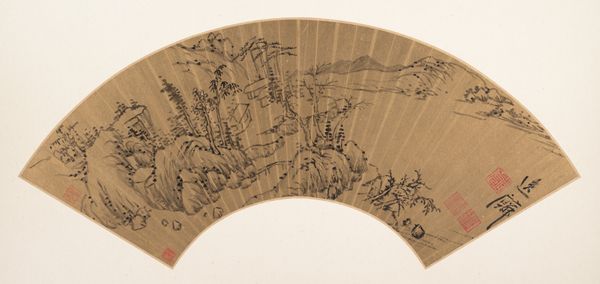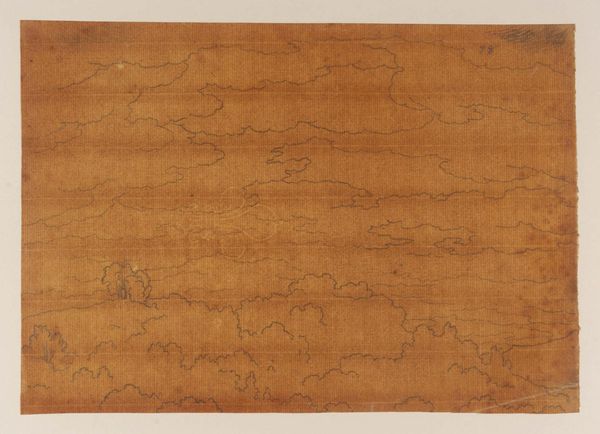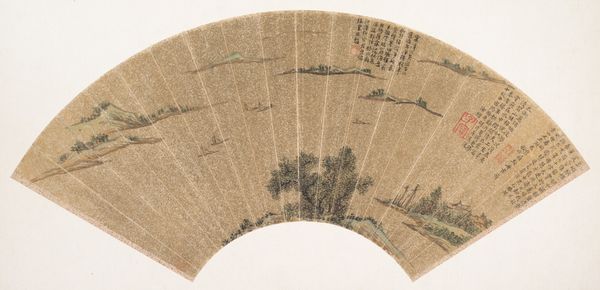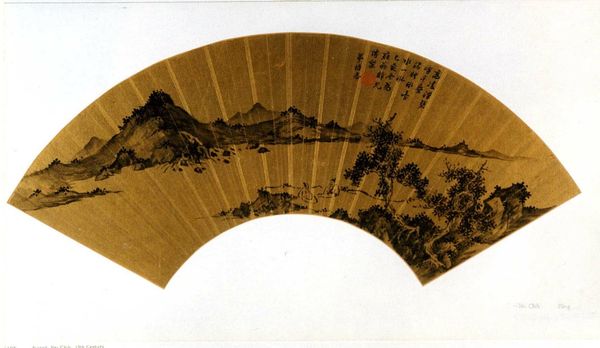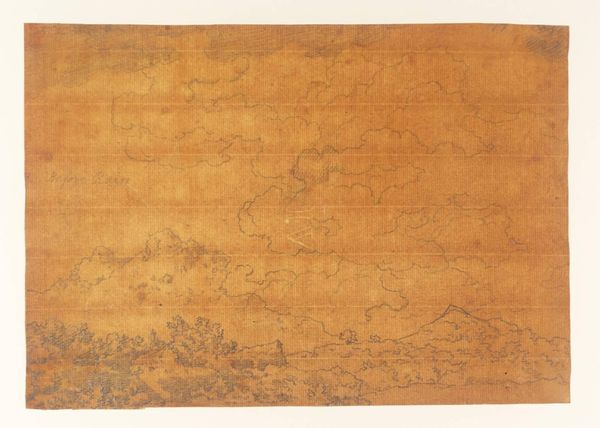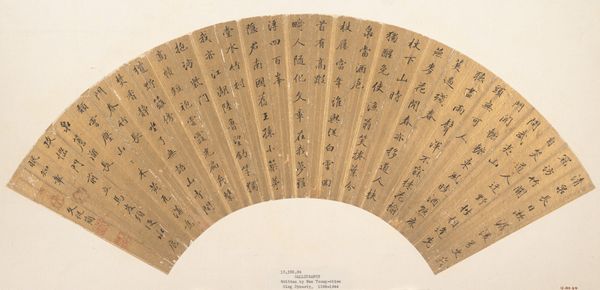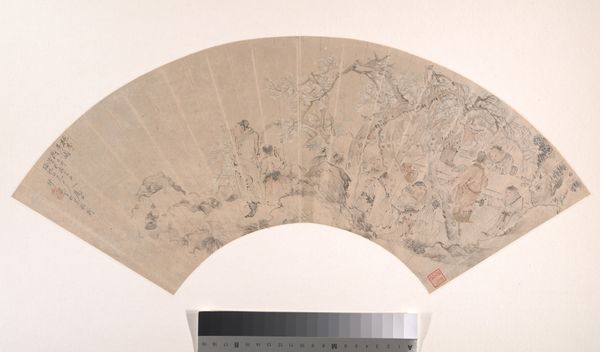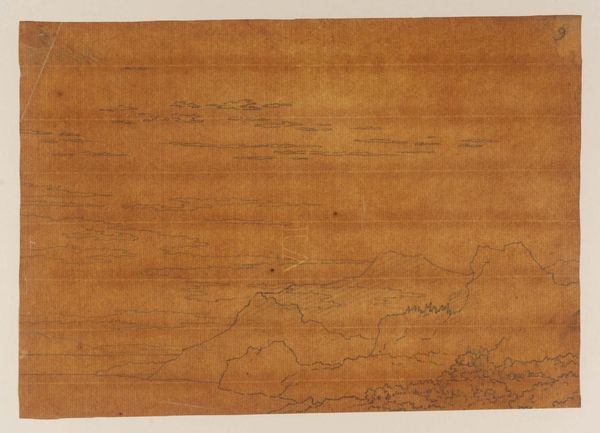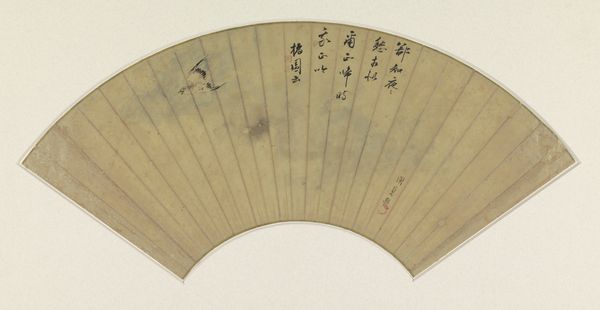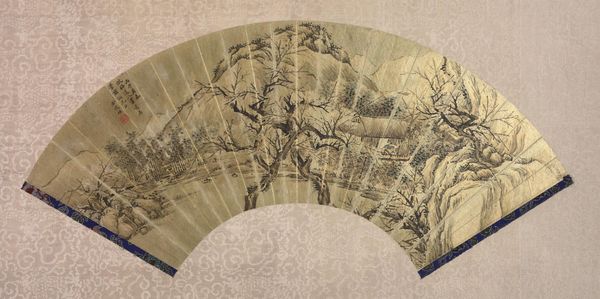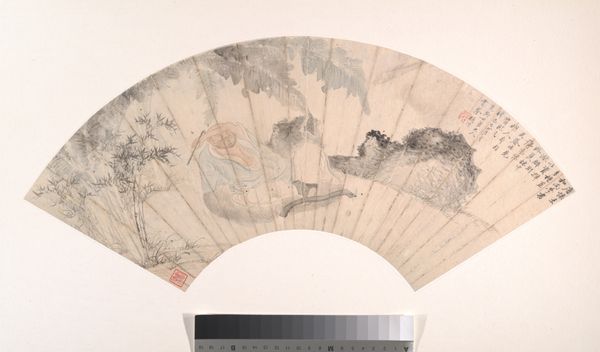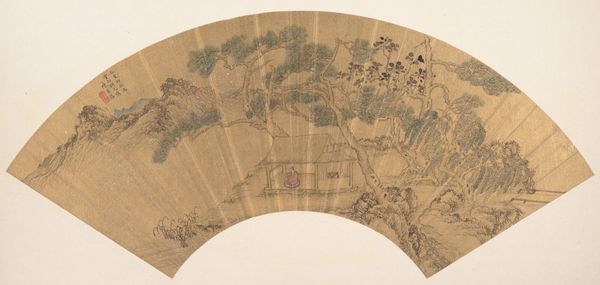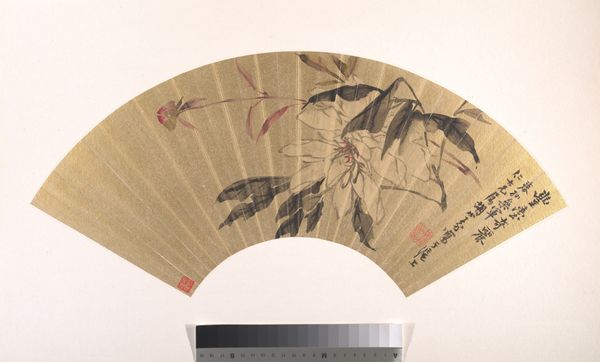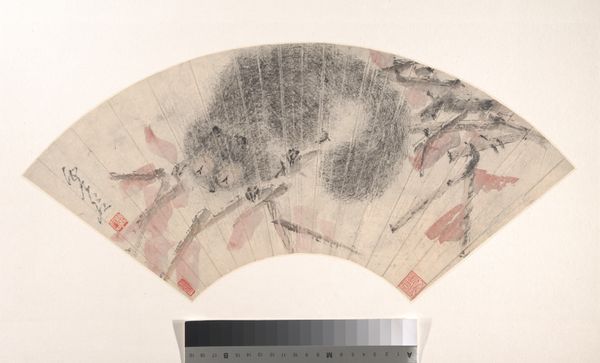
mixed-media, painting, paper, ink
#
mixed-media
#
painting
#
asian-art
#
landscape
#
figuration
#
paper
#
ink
#
mixed media
Dimensions: Upper width between top corners: 51 cm; width between lower corners: 22.3 cm; Rib length: 16.8 cm; mat size: 16 × 25 in.
Copyright: Public Domain
Curator: Before us, we have Cheng Jiasui's "Scholar Playing a Qin," a mixed-media painting rendered in ink and color on paper, dating back to 1632. Editor: It’s remarkable how much serenity is captured within this small, fan-shaped frame. The subdued palette, the scholar’s meditative pose – it all contributes to an overwhelming sense of tranquility. Curator: The fan format itself plays a role. In the late Ming Dynasty, such paintings weren't merely decorative; they symbolized a cultured life, blending artistry and practical use. These fan paintings reflect social aspirations. Editor: I’m immediately drawn to the composition; the way the scholar is situated high on a precipice, yet dwarfed by the natural formations of pines and the horizon line, underscores the relationship between individual consciousness and landscape. How fascinating! Curator: Absolutely. This miniaturist style became increasingly popular, in the face of rapid social changes; an introspective form of commentary against the upheavals of its time. We notice a refined appreciation for materials, with ink graduations forming spatial depth despite its scale. Editor: True. And one cannot overlook the figure itself; with the red robe contrasted with monochrome surrounding—it seems carefully calibrated for its contemplative effect, possibly to reflect inner enlightenment through engagement of the arts. A subtle yet striking choice! How did this influence society at that time? Curator: We think art was becoming a signifier. The act of appreciating and creating landscapes suggested refinement that separated individuals within their own societal structure. Editor: Considering how it fits within social and political trends, and with this kind of material specificity—I believe it prompts interesting ideas about historical significance for how we see our relation with nature, history and art itself. Curator: Indeed, and as viewers, understanding not just the painting but its function within cultural dynamics truly enriches its impact. Editor: Precisely! It’s rewarding to appreciate an art object not merely on compositional value, but with its interplay on culture.
Comments
No comments
Be the first to comment and join the conversation on the ultimate creative platform.
